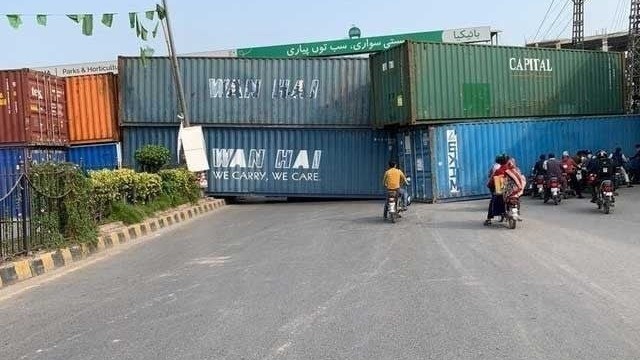A Tragic Loss on Karsaz Road
On August 20, 2024, Karachi was shaken by a devastating tragedy that claimed the lives of two innocent individuals. Imran Arif, a 60-year-old father, and his 22-year-old daughter, Amina, were killed in a horrific accident on Karsaz Road. Their lives were brutally cut short when a speeding SUV, driven by Natasha Danish Iqbal, spiraled out of control and crashed into them. This heart-wrenching incident also left five others injured, with some still clinging to life in a battle for survival.
The Culture of Reckless Driving
This tragedy is not just a singular event but rather a symptom of a pervasive and dangerous culture of reckless driving that has plagued our roads for far too long. Natasha’s actions allegedly influenced by her mental instability, underscore the grave dangers of operating a vehicle without a fundamental regard for the safety of others. Reckless driving has become alarmingly common, with many drivers treating traffic laws as mere suggestions, disregarding the rules designed to protect lives, and showing an utter lack of respect for the sanctity of human life.
The roads of Karachi, much like those of many other cities, have become arenas of daily peril, where the lives of pedestrians and fellow motorists are constantly at risk. The tragedy on Karsaz Road is a stark reminder that when we fail to hold drivers accountable for their actions, we not only fail the victims but also endanger the lives of countless others.
The Legal Battle: A Test of Justice
Adding to the horror of this incident is the ongoing legal battle, where Natasha’s defense team is attempting to exonerate her by citing mental instability. This defense tactic not only dishonors the memory of the victims but also sets a dangerous precedent. If individuals responsible for such devastating acts are allowed to escape justice through legal loopholes or by leveraging personal connections, it sends a chilling message that our legal system is more concerned with protecting the privileged than ensuring justice for the victims. Such leniency not only emboldens reckless drivers but also erodes public trust in the very institutions meant to safeguard our rights and lives.
Ensuring Accountability: A Path to Safer Roads
To prevent future tragedies like the one on Karsaz Road, it is imperative that those responsible for reckless driving are held fully accountable for their actions. Our legal system must stand resolute, ensuring that individuals like Natasha are brought before the courts and face the full weight of the law. This is not merely a matter of justice for the victims but a crucial step in fostering a culture of responsibility and respect on our roads.
Stricter enforcement of traffic laws, coupled with a judiciary that prioritizes public safety over personal connections or social standing, is essential. The roads are a shared space, and the safety of all must be the paramount concern. By holding those who endanger lives accountable, we can begin to reverse the tide of reckless driving that has turned our streets into dangerous thoroughfares.
How We Can Prevent Future Tragedies
- Stricter Traffic Law Enforcement: It is essential that authorities not only implement but also rigorously enforce traffic laws. This includes regular checkpoints, imposing higher fines, and mandating comprehensive education programs for violators. Such measures will serve as a powerful deterrent to reckless driving, reducing the likelihood of similar incidents in the future.
- Public Awareness Campaigns: Educating the public about the dire consequences of reckless driving is crucial. Media campaigns, community outreach programs, and public service announcements can help instill a sense of responsibility in drivers, emphasizing that a moment of carelessness can lead to a lifetime of regret.
- Judicial Accountability: The legal system must remain unwavering in its commitment to holding accountable those who endanger lives on the road. Leniency in such cases sends the wrong message and only serves to put more lives at risk. Justice must be served not just for the victims but as a warning to others who might consider engaging in reckless behavior.
- Community Involvement: Communities play a vital role in advocating for safer roads. By lobbying for better infrastructure, demanding legal reforms, and supporting victims and their families, communities can help create a safer environment for all. Grassroots movements can drive significant change, ensuring that tragedies like the one on Karsaz Road are never repeated.
Justice and Change
The tragedy on Karsaz Road is a somber reminder of the fragility of life and the catastrophic consequences of reckless driving. It should serve as a catalyst for change, both in our legal system and in our collective consciousness. By holding Natasha and drivers like her accountable, we honor the lives lost and take a crucial step toward preventing future incidents. Our roads must be sanctuaries of safety, not death traps, and that safety begins with accountability. It is time for us to demand justice, embrace change, and ensure that no family has to endure the pain and suffering that Imran Arif and Amina’s loved ones now face.



